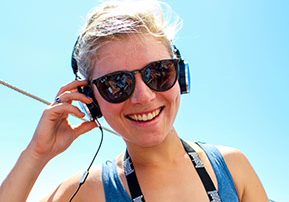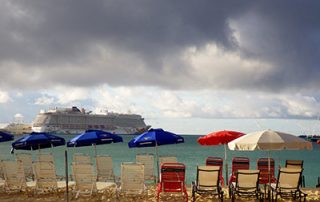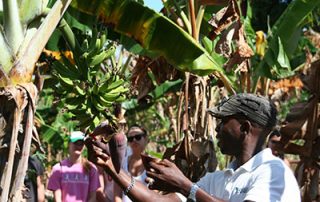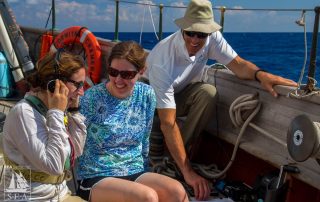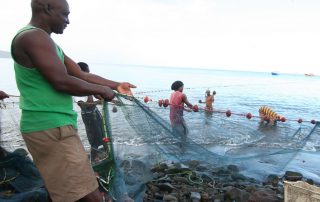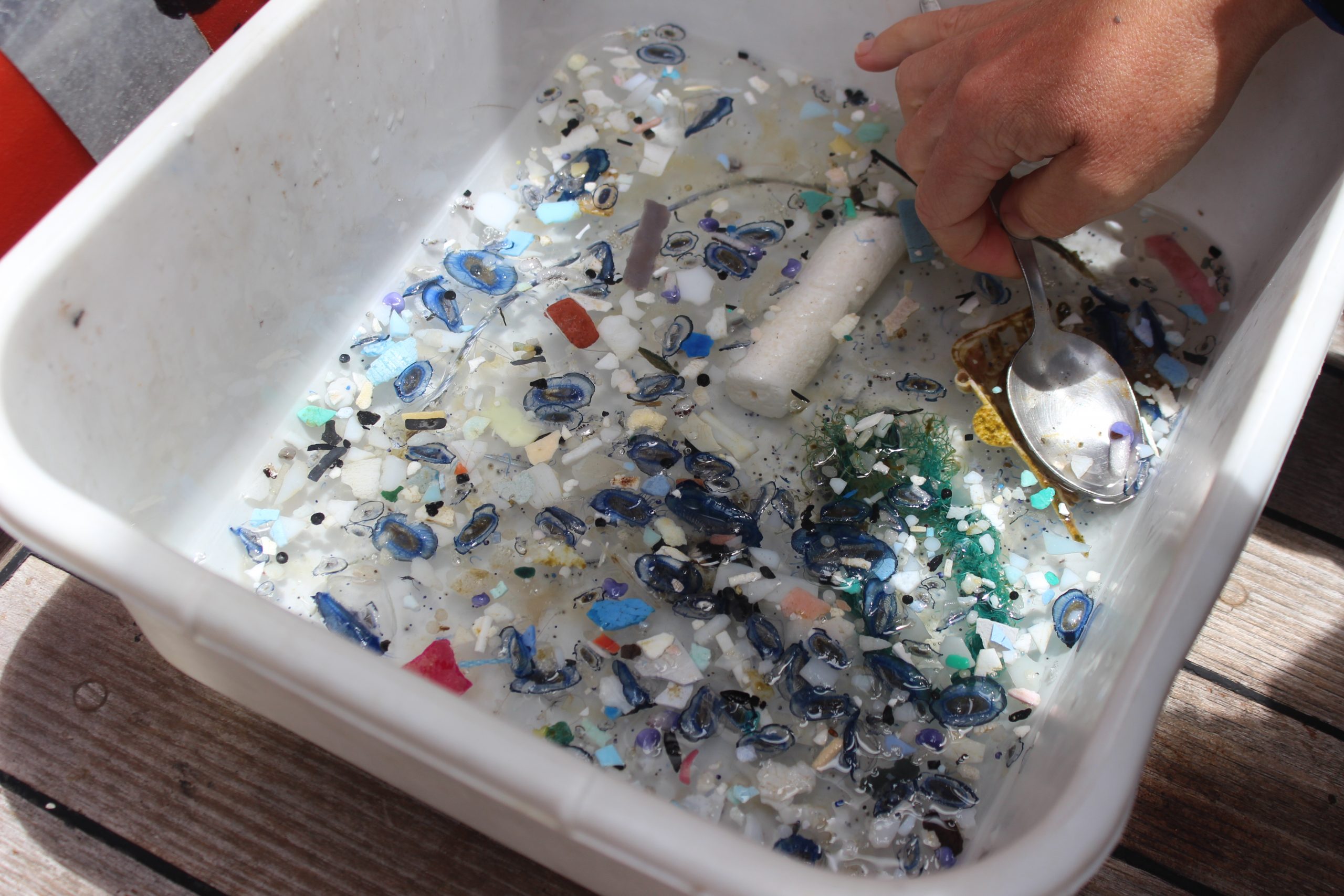Marine Environmental History
Research @ SEA
Marine Environmental History
Marine environmental history explores the intersection of humans and island ecosystems from mountain tops to coral reefs and across coastal exclusive economic zones (EEZs). Historical study begins at the time of indigenous peoples’ migrations and continues through tumultuous centuries of European conquest and colonization, leading to the contemporary era of island independence and the rise of mass tourism, especially as enabled by cruise ships. SEA Semester students investigate the role of ships, sailors and ideas as agents of environmental, cultural, social and economic change in island nations.

Land use change and conservation
Colonial endeavors have wrecked havoc upon islands – isolated ecosystems uniquely constrained by available natural resources – and numerous modern issues stem from this legacy of overuse, monoculture, and continued resource extraction. Many islands in the Caribbean and the Pacific, striving for environmental justice, are now working to meet the needs of growing populations. SEA Semester student projects focus on efforts to diversify economies and conserve the remaining resources to build or maintain food security and sustainable market crop production.
Iconic, introduced and invasive species
Every island, due to geographic isolation and natural selection, is a hot spot of endemic species and hosts a diversity of habitats that contribute to the cultural identity of island residents (for example, the parrot on Dominica’s flag). However, these iconic species and habitats may be threatened by introduced (non-native) species such as the mongoose, and adversely affected by invasive species such as the lionfish.
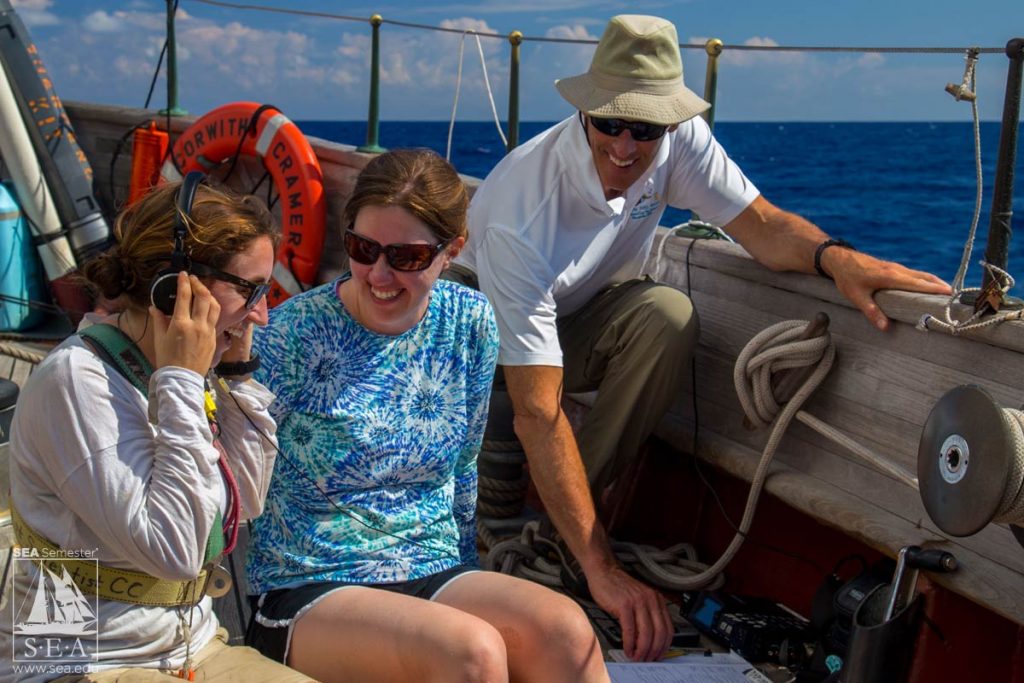
Ocean Soundscapes
The ocean is a symphony if one takes the time to listen. The sounds of breaking waves, rainfall, or calving ice mix with humpback whale songs, snapping shrimp, and foraging reef parrotfish to create a unique chorus of frequencies specific to a given marine region. Recent research describes increases in anthropogenic noise pollution accompanying the rise in ship traffic and other human activities on, in or near the oceans, as well as impacts of such noise on marine mammals and coral reef health. By deploying hydrophones and fine tuning our recording devices, SEA Semester students document ocean soundscapes around the world. Specially-designed software is then used to visualize and quantify different soundscapes, allowing comparison between locations and over time. In each studied environment, acoustic measurements are augmented with visual observations of marine mammal behavior (e.g., breaching, blows, fluke dive), reef fish abundance and biodiversity, or vessel traffic.
Island tourism impacts
Tourism is the fastest growing economic sector for most island nations. Unfortunately, the corresponding increase in demand on island resources by the massive influx of visitors threatens the natural beauty and unique environments that attract tourists in the first place. In addition, much of the revenue earned through tourism activities does not stay on the islands or make it into the hands of residents. SEA Semester student projects highlight the unequal nature of tourism-focused development and analyze efforts to achieve a sustainable balance between economic growth, economic equity, and a healthy, productive and resilient environment.

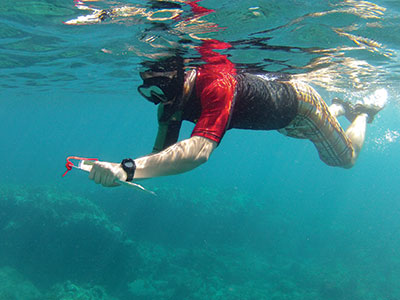
Coral reef ecosystem services
Coral reef ecosystems and the natural resources they provide are essential to the economic vitality of small island states and the livelihoods of their residents. Following past periods of rapid and minimally-regulated development, most islands face declines in fisheries, loss of marine species, and threats to coral reef health. These circumstances, coupled with the impacts of climate change in the Anthropocene, have propelled island nations to the forefront of marine resource management and innovation. SEA Semester students speak with reef health stakeholders and collect field data during coral reef snorkeling surveys to assess how land use, watershed management, and tourism impact the state of reef resources throughout a specific region.
Papers and Publications
Linares, A., 2018. Humpback whale acoustic recording within a 24 hour cycle. Unpublished student research paper, Class C-277, Sea Education Association, Woods Hole, MA.
Churchwell, J., 2018. Abiotic soundscapes in the Caribbean Sea. Unpublished student research paper, Class C-277, Sea Education Association, Woods Hole, MA.
Oliva, H., 2017. Sea level rise-driven flood planning in Fiji. Unpublished student research paper, Class S-275, Sea Education Association, Woods Hole, MA.
Blair, N., 2017. Environmental impacts of cattle, pig, and poultry livestock in Fiji. Unpublished student research paper, Class S-275, Sea Education Association, Woods Hole, MA.
Schmitz, S., 2017. Coconut trees in Tonga in the face of climate change. Unpublished student research paper, Class S-275, Sea Education Association, Woods Hole, MA.
Carreau, A., 2017. Red algae and its ecological impacts on native species and biodiversity in the South Pacific. Unpublished student research paper, Class S-275, Sea Education Association, Woods Hole, MA.
Brown, G., 2017. Crown of Thorns starfish in Polynesian coral reefs. Unpublished student research paper, Class S-275, Sea Education Association, Woods Hole, MA.
Chow, N., 2017. Analysis of relationship between human activities and shark populations in the South Pacific subtropical gyre. Unpublished student research paper, Class S-273, Sea Education Association, Woods Hole, MA.
Porterfield, K., 2017. Kaitiakitanga: a modern framework for conservation in Aotearoa. Unpublished student research paper, Class S-271, Sea Education Association, Woods Hole, MA.
Egan, J., 2017. Invasive lionfish management and sustainable island development. Unpublished student research paper, Class C-271, Sea Education Association, Woods Hole, MA.
Bongi, J., 2017. Nutrient imbalances in coral reefs: causes, consequences and management. Unpublished student research paper, Class C-271, Sea Education Association, Woods Hole, MA.
Jacobus, E. and D. Mayer, 2016. Impact of urban environments on benthic community health in the western Mediterranean. Unpublished student research paper, Class C-269, Sea Education Association, Woods Hole, MA.
Atterbury, M. and M. Michel, 2016. Iconic species and the relationship between conservation and sense of place. Unpublished student research paper, Class S-264, Sea Education Association, Woods Hole, MA.
Wagner, A., 2016. Recent coral bleaching events in Western Polynesia: causes and effects. Unpublished student research paper, Class S-269, Sea Education Association, Woods Hole, MA.
Karsten, E., 2016. Reducing ecosystem vulnerability through MPAs in Pacific Islands. Unpublished student research paper, Class S-269, Sea Education Association, Woods Hole, MA.
Latest Research News
SEA’s Dr. Kara Lavender Law: collaborating to solve ocean plastic pollution
A new report, "The future of ocean plastics: designing diverse collaboration frameworks," coauthored by SEA's Research Professor of Oceanography Kara Lavender Law, was [...]
SEA Plastics Lab Launches New Website
This week, the SEA Plastics Lab launched a new website intended to be a valuable resource for those interested in learning more about [...]
Dr. Jeff Schell Receives Henry L. and Grace Doherty Chair of Ocean Studies
SEA Professor of Oceanography Jeff Schell has been named the inaugural recipient of the Henry L. and Grace Doherty Chair of Ocean [...]

